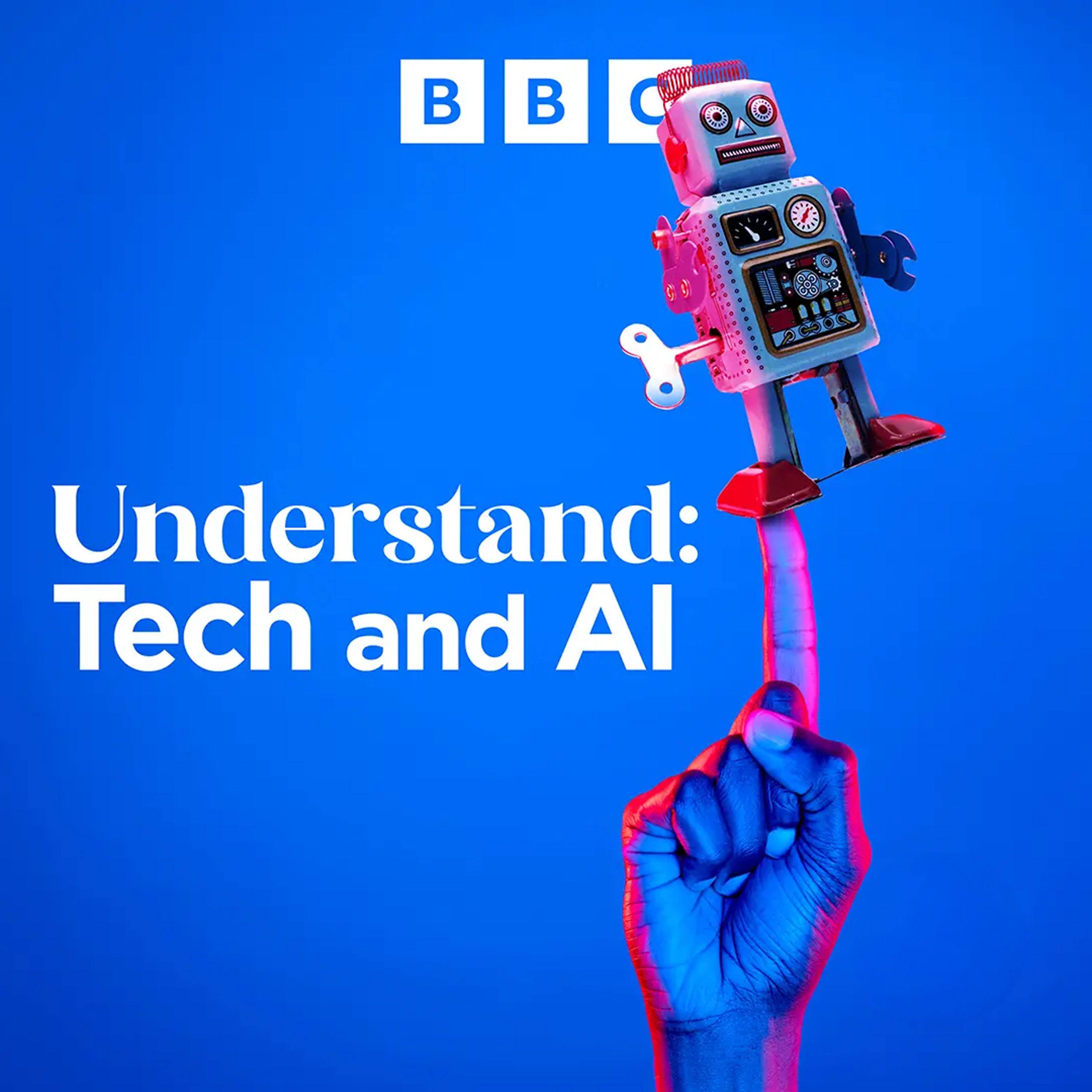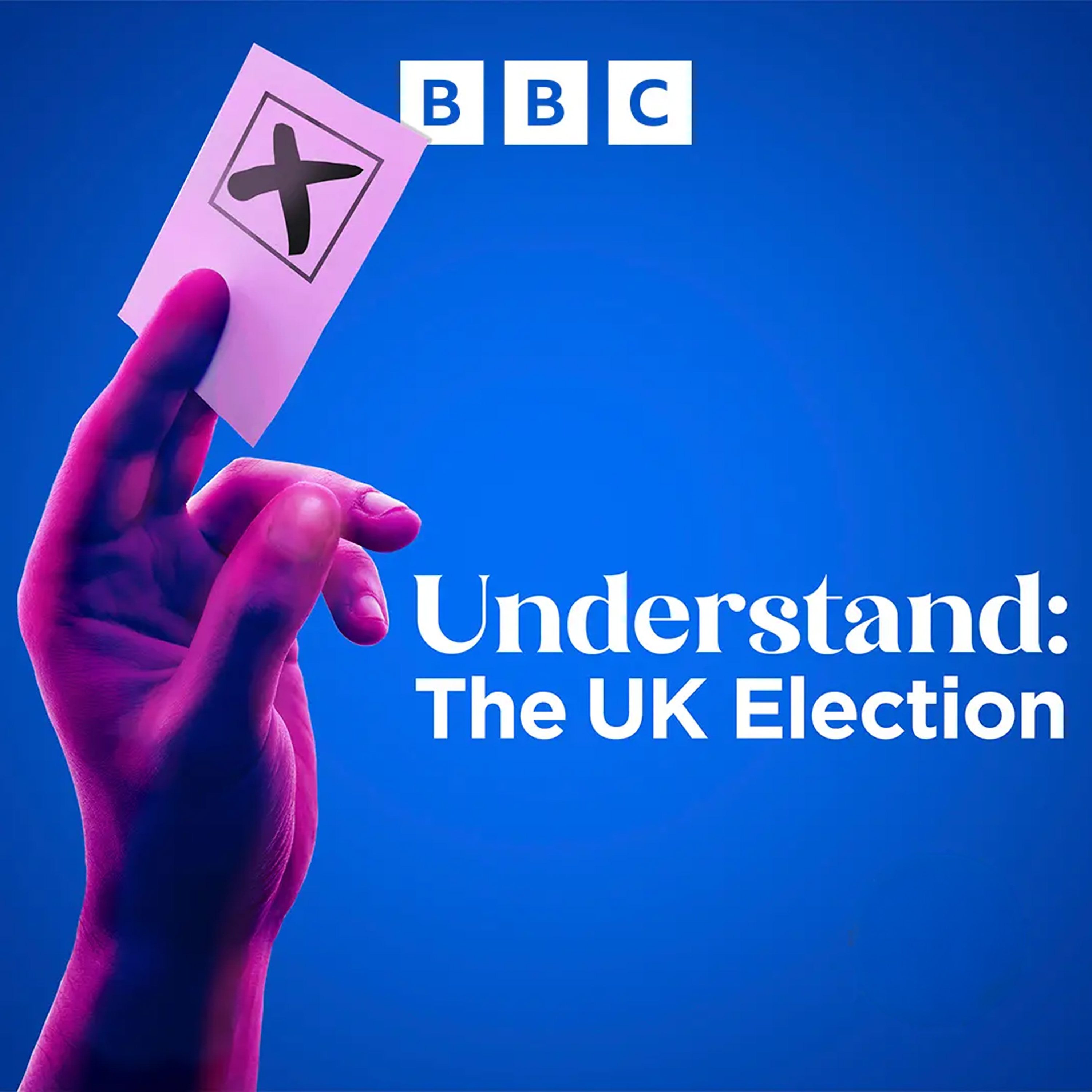Tech and AI: 4. Cryptocurrency, Blockchain and Web 3.0
You might be wary of using digital currencies, but you probably already do.
Salaries, benefits and pensions are now paid direct to banks, and when you buy a coffee, you may well use a contactless card to pay, without a flutter of a 5 pound note in sight.
So what are online cryptocurrencies like Bitcoin, and why won't some people touch those with a barge pole? And when you hear about them, another word always pops up - Blockchain. What does it do? And how could both become important when we start to use the next version of the Internet, called web 3.0?
Technology has already completely altered our lives, and Artificial Intelligence may transform our world to an even greater degree. This series is your chance to get back to basics and really understand key technology terms. What's an algorithm? where is "the Cloud" and what are VR and AR? What's the difference between machine and deep learning in artificial intelligence, and is it just our jobs under threat, or is it much worse than that? And before we get to the destruction of humanity, should we all be using Bitcoin? Our experts will explain in the very simplest terms everything you need to know about the tech that underpins your day. We'll explore the rich history of how all these systems developed, and where they may be going next.
Presenter: Spencer Kelly
Producers: Ravi Naik and Nick Holland
Editor: Clare Fordham
Production Coordinator: Janet Staples
Press play and read along
Transcript
Speaker 1 This BBC podcast is supported by ads outside the UK.
Speaker 2
This NFL season, Every Moment Counts. It's the ultimate season to score, powered by TCL, the official TV partner of the NFL.
And believe me, football has never looked better.
Speaker 2
Picture this: kick off on a massive 75-inch TCL QD mini LED TV. The brightness is stunning, the colors explode with intensity, and the motion is so smooth.
You'll feel like you're on the sidelines.
Speaker 2 Whether it's touchdowns, movies, or gaming marathons, TCL delivers performance that brings it all to life. TCL makes it easier than ever to upgrade with savings up to 50% off select models.
Speaker 2
Don't just watch the game, own it. TCL is the official TV partner of the NFL.
Available at all major retailers. Visit TCL.com for details.
That's tcl.com. TCL, the ultimate season to score.
Speaker 3
Suffs, the new musical has made Tony award-winning history on Broadway. We demand to be winner, best score.
We demand to be seen. Winner, best book.
We demand to equal it.
Speaker 3 It's a theatrical masterpiece that's thrilling, inspiring, dazzlingly entertaining, and unquestionably the most emotionally stirring musical this season.
Speaker 3 Suffs, playing the the Orpheum Theater, October 22nd through November 9th. Tickets at BroadwaySF.com.
Speaker 4 BBC Sounds, Music, Radio, Podcasts.
Speaker 1 Welcome to Understand Tech and AI, the podcast that takes you back to basics to explain, explore, unpick, and demystify the technology that's becoming part of our everyday lives.
Speaker 1 I'm Spencer Kelly from BBC Click and you can find all of these episodes on BBC Sounds.
Speaker 5 Money.
Speaker 1
Like it or not, it makes the world go round. And for most of recorded history, we would pay for things using some form of physical currency.
gold, food, livestock, whatever.
Speaker 1 And what you paid me and what I paid you was between the two of us.
Speaker 5 No one else needed to know.
Speaker 1 These days though, most payments in this part of the world at least are made either using a payment card or online.
Speaker 1 And they go through our banks along the way to check we've got enough in our accounts to cover things.
Speaker 1
But in 2009, a new type of currency emerged. It was called Bitcoin.
And although it only existed online, it didn't go through any banks, banks, governments or other financial institutions.
Speaker 1
Once again, I could pay you directly and no one else needed to know. Bitcoin is now just one of many so-called cryptocurrencies.
And that is what we're going to try and understand today.
Speaker 1 I'm joined by Kitty Horlick, who's the director of Rarefy Labs, and she's also a consultant helping traditional businesses to understand and work with cryptocurrencies and their underlying technologies.
Speaker 1 Kitty, hi.
Speaker 5 Hi, thanks for having me.
Speaker 1 No worries, let's start with the most basic question.
Speaker 5 What is
Speaker 5 Bitcoin?
Speaker 4 Okay, so Bitcoin is a digital currency. So it's similar to pounds or Euros in the sense that you can pay for things with it, but online, but there are a few essential differences.
Speaker 4 The first big difference is that traditional money like pounds or euros are issued and maintained by governments or banks and Bitcoin as a cryptocurrency is instead issued and maintained by a piece of technology called a blockchain and this blockchain in turn is owned by the masses.
Speaker 1 Aaron Ross Powell So this is a decentralized currency that is not controlled or regulated by any government, any bank, which is what is attractive about it to a certain type of person, isn't it?
Speaker 4 Yes, exactly. Decentralized means you don't have that central power.
Speaker 4 But to say they're not regulated at all would perhaps not be accurate because even if you set aside government regulation for a moment, actually Bitcoin is regulated by the blockchain technology that controls it.
Speaker 1 Now, whereas banks keep a record of our bank accounts for us, they know how many pounds I've got, how many dollars, how many Euros you've got.
Speaker 1 With Bitcoin and other cryptocurrencies, there's no central organization keeping that record of who has what.
Speaker 1 This is done instead by this piece of software called blockchain. Can you have a go at explaining blockchain for us?
Speaker 4 Yes.
Speaker 4 So what blockchain offers is a digital ledger where all transactions are permanently stored in a way that's completely tamper-proof, which gives you the confidence that it hasn't been edited, it hasn't been changed, and also that's visible.
Speaker 4 So anybody can look at the blockchain and see the entire history of transactions that have taken place. And this is useful useful for a couple of reasons.
Speaker 4 Firstly, that it makes it very hard to commit fraud, and also that it's very, very hard to fake transactions.
Speaker 1 So, the job the banks used to do, protecting from fraud, keeping honest accounts of who's got what, remove the banks from the equation, this is the other way of doing it that doesn't involve having one trusted organization in the mix.
Speaker 5 Yep.
Speaker 1 And then the other really big difference is that because cryptocurrencies are not regulated by a bank or a government, they're not kept stable in value either.
Speaker 1 And so you see the value of something like Bitcoin fluctuate wildly. I mean, I think at its highest, it was about £50,000
Speaker 1 per Bitcoin. If I bought Bitcoin when I first started reporting on it, I would have been a multi-millionaire because they were like £60 and they go up and down all the time.
Speaker 1 I think this is what troubles a lot of people.
Speaker 4 Yeah, it's extremely volatile. And the other thing I would say is that Bitcoin is one of many, many currencies.
Speaker 1 Does that mean that
Speaker 1 people
Speaker 1 shouldn't just have it about the place, as it were, just in case they need it? They really need to get into this world and understand what something like Bitcoin could be used for first.
Speaker 4 Yes.
Speaker 4 So I think the most intrinsic property of cryptocurrencies is that you can use them to buy and sell assets that are supported by blockchain technology.
Speaker 4 So, if you have no interest in blockchain technology, it's going to be very, very hard for you to understand the purpose of these coins and how they're used.
Speaker 1 So, blockchain is a way of keeping records and maybe of how much money I have, but it can do more than that. It can store more information and keep more records than that, right?
Speaker 4 Yeah, so it's keeping a record of all your transactions.
Speaker 4
And you're also able to store other things as well as money. You can store certificates of ownership.
So you can prove that you own things that aren't cryptocurrencies.
Speaker 4 You could prove that you own an artwork or a house or a fine wine.
Speaker 1 Now, the way that you prove that a digital artwork is the original copy is by attaching a special token to it, which we call an NFT, right? And people might have heard of NFTs.
Speaker 5 Yes.
Speaker 1 Do you also hate that?
Speaker 5 title as much as I do. Yes, I do.
Speaker 1 Come on, tell us what it stands for.
Speaker 4
Okay, so I'm really sorry, listeners. It's It's a horrible term.
It stands for non-fungible token.
Speaker 1 I mean, I've never heard the word fungible before. It sounds like something I need cream for.
Speaker 4 Yeah, no, it's a terrible word.
Speaker 5 What does it mean?
Speaker 1 Or at least what should it tell us when an NFT comes attached to a piece of digital artwork?
Speaker 4
All it means is original. So the reason it's not fungible is because fungible means that there's loads of interchangeable copies.
So money is fungible.
Speaker 4
Because you can swap one £10 note for any other £10 note. It doesn't matter.
They're the same. And NFTs are like, hey, no, don't swap us.
We're completely unique.
Speaker 1 What I find fascinating is that the origins of Bitcoin and blockchain are rather mysterious. So Kitty, if I can pause you for a minute, let's hear from Dr.
Speaker 1 James Sumner from the University of Manchester, our resident technology historian, who has a rather strange tale.
Speaker 5 This is a story of how mistrust, a libertarian spirit, and a do-it-yourself attitude combined to create one of the classic technological mysteries of our time.
Speaker 5
In 1984, the journalist Stephen Levy published a book entitled Hackers. His topic was the hacker ethic.
One of the key rules of the hacker ethic was, mistrust authority, promote decentralization.
Speaker 5 The reason why hackers mistrust central authorities, said Levy, is that they experience them as always putting up barriers.
Speaker 5 To the hackers, anyone with the right skills to do better had earned the right to join in.
Speaker 5 By the 1970s, they were making their own computers, as Steve Wozniak, one of the founders of Apple, and the tech journalist Bob Cringely recalled in 2011.
Speaker 6 What happened was you wanted a computer or a piece of software or some product that didn't exist. You looked around, it didn't exist, so you built it.
Speaker 5
The values were sharing. If you have parts, it can help people.
If you have knowledge, you'll share.
Speaker 5 It should be no surprise that blockchain technologies, when they started to appear in the 2000s, immediately resonated with users brought up on hacker values.
Speaker 5 The traditional mistrust of corporations extended naturally to the banking sector. In 2008, the hackers' misgivings were spectacularly confirmed.
Speaker 1 We were on the very brink of Armageddon. The stakes were incredibly high.
Speaker 3 The giant Royal Bank of Scotland, known as RBS, ran out of cash.
Speaker 5 Within months of the financial crash, a developer named Satoshi Nakamoto launched Bitcoin.
Speaker 5 The person behind the name has never been firmly identified, but to the most hardcore enthusiasts, the point is that we simply don't need to know.
Speaker 1 Ooh, that was weird, wasn't it? That was Dr. James Sumner.
Speaker 1 Now, Kitty, personally, I think that blockchain and cryptocurrencies are very clever ideas, but they just haven't caught on because for a long time, people just couldn't think of a practical use for them.
Speaker 1 But you, Kitty, think that there is something on the horizon where we might want to use the blockchain.
Speaker 4 Oh, yes. The product that's waiting on the other side is this version of the internet that we call Web3, where there's going to be a whole host of new applications and things done very differently.
Speaker 4 And transactions are just a tiny part of that. So, when the internet first kind of popped onto the scene, it was a read-only internet.
Speaker 4 So, you could go online and you could read static documents, that you actually couldn't engage with it. And then Web 2 happened, and the internet became read and write.
Speaker 4 So, you could do things like edit a Wikipedia page or use social media, and it became interactive. But, ironically, the more interactive it became, the more centralized it became.
Speaker 4 So, there's a couple big companies that largely control the internet.
Speaker 1 Yeah, famously, Facebook has a lot of our data, Meta and Google has a lot of our data and they use that data to, I guess, make money off of us by targeting us with specific ads.
Speaker 4 And I'm very glad that you brought up data and money because this is one of the exciting things that Web3 promises to do is it promises to give you ownership over your own data and also to be able to monetize it.
Speaker 5 But
Speaker 4 to go back to what Web3 is, it's this new version of the internet where you can read, you can write, and you can own.
Speaker 4 So you would own own your own data in the form of NFTs and it's this decentralized model of ownership that is reflected in cryptocurrencies but can creep also into internet services.
Speaker 1 You've mentioned web 1, web 2 and now web 3 and we didn't really notice that we were moving to web 2 from web 1. We still accessed the web through the same kind of browser.
Speaker 1 We could just do more things. Will we notice as we move to web three?
Speaker 4 Right now we're in a very early phase of Web3. The user experience is quite clunky and it's quite different, and you've got to do complicated things.
Speaker 4 But over time, as these services streamline and become better and better, it'll be a lot more subtle.
Speaker 4 It's not necessarily going to kill or remove Web 2 in the same way that Web 2 didn't remove or kill Web 1. Like you still have a lot of static pages on the Internet.
Speaker 4 It's just going to be there's certain spaces or certain areas of the Internet where you might want to use a Web3 model instead.
Speaker 1 We've got these enormous companies like Meta and Google who are very grateful that we've given them all our data.
Speaker 1 There's going to be a little bit of resistance if we all move to a Web3 where we own our data and they have to come knocking and asking for it and possibly paying for it.
Speaker 4 I don't think so. I mean, there was a lot of resistance to cryptocurrency.
Speaker 4 It's not in the interests of many banks to have a rival to their service and banks are extremely powerful and yet you're still seeing cryptocurrency blossom.
Speaker 1 Kitty, thank you so much for helping me to turn what I think is quite a complicated topic into something that is digestible. Thank you for helping us to understand this stuff.
Speaker 4 Thank you so much for having me. It's been a pleasure.
Speaker 1 So if you take one thing away from this episode, maybe it should be this.
Speaker 1 Cryptocurrency is still not ready for prime time. Its uses are limited and its value can fluctuate.
Speaker 1 But the technology that underpins it, blockchain, may soon be used to free us all from the corporations and let us own our own data once again.
Speaker 1 But what happens to all that data?
Speaker 5 Where does it go and who's looking at it?
Speaker 1 Well that's what we'll be trying to understand in the next episode. Until then, bye for now.
Speaker 3 Suffs, the new musical has made Tony award-winning history on Broadway.
Speaker 7 We demand to be home.
Speaker 3
Winner, best score. We demand to be seen.
Winner, best book. We demand to be quality.
Speaker 3 It's a theatrical masterpiece that's thrilling, inspiring, dazzlingly entertaining, and unquestionably the most emotionally stirring musical this season.
Speaker 3 Suffs, playing the Orpheum Theater, October 22nd through November 9th. Tickets at BroadwaySF.com.
Speaker 7 It's finally happened. Your kid could be part of the first generation to never suffer the rough touch of toilet paper on their tender tush.
Speaker 7 All thanks to new flushable Little Dude wipes available in Bubble Bum Scent or fragrance-free. Because we know little butts can make a big mess.
Speaker 7 But with Little Dude Wipes, you can keep your kids' keister clean without the burn and debris toilet paper can leave behind on their behinds.
Speaker 7 Experience the confident clean of little dude wipes available exclusively at Walmart nationwide.


